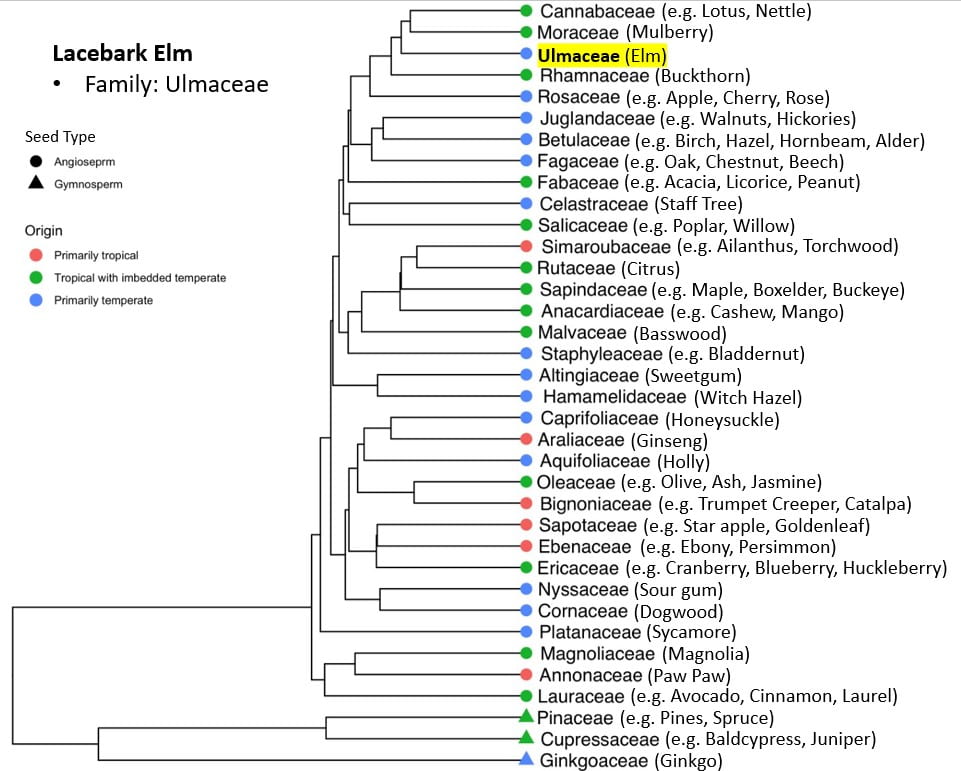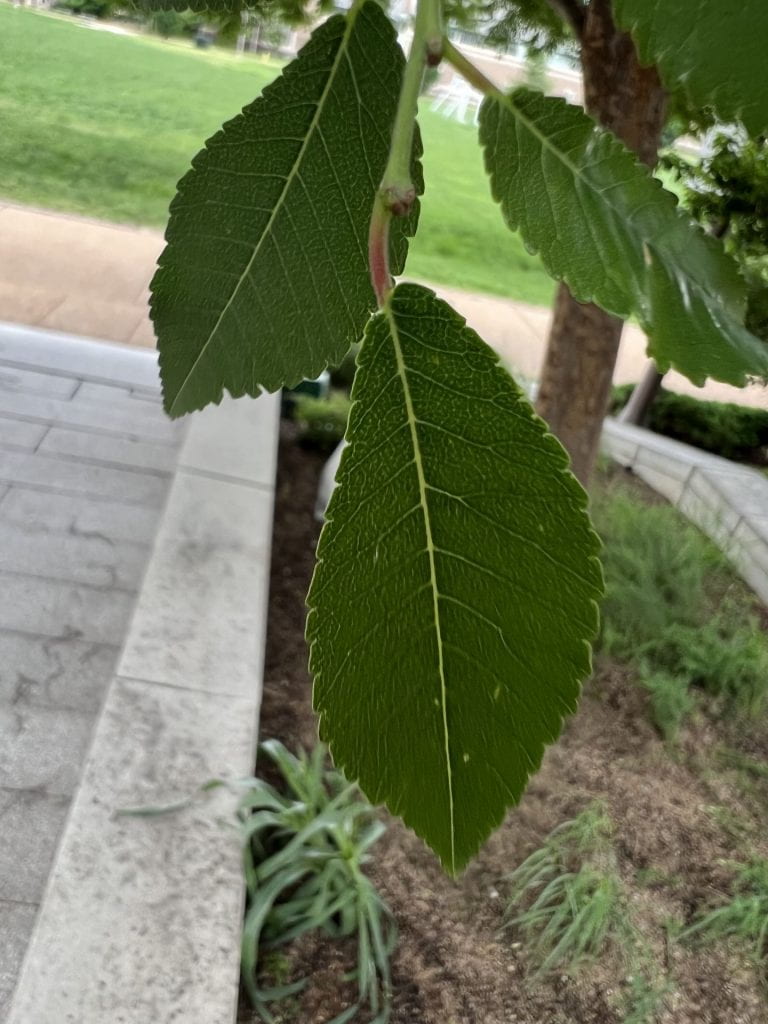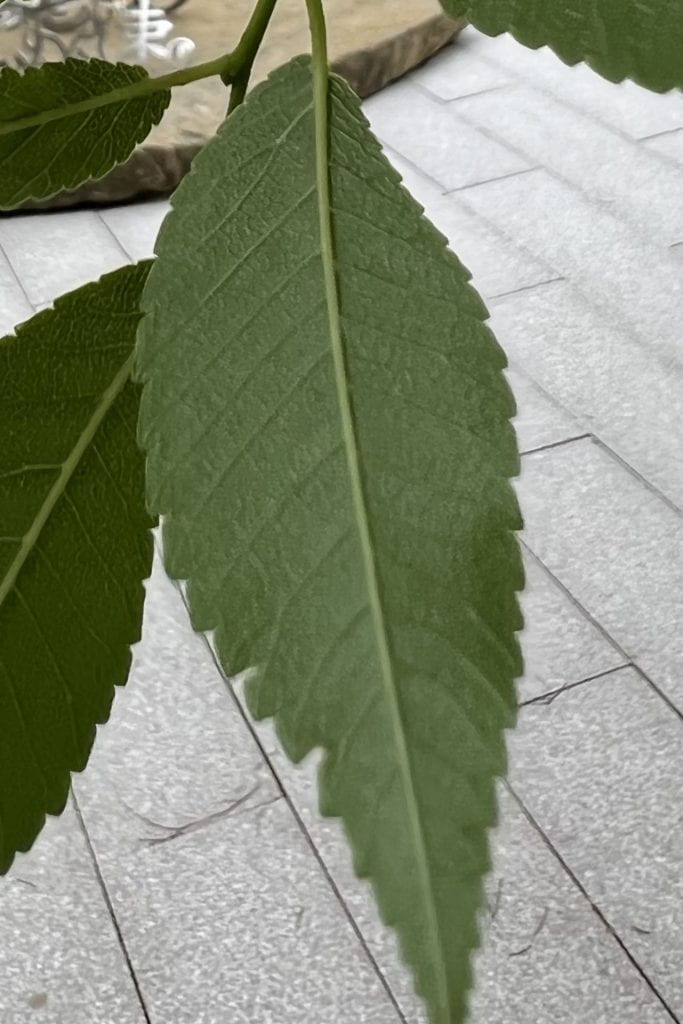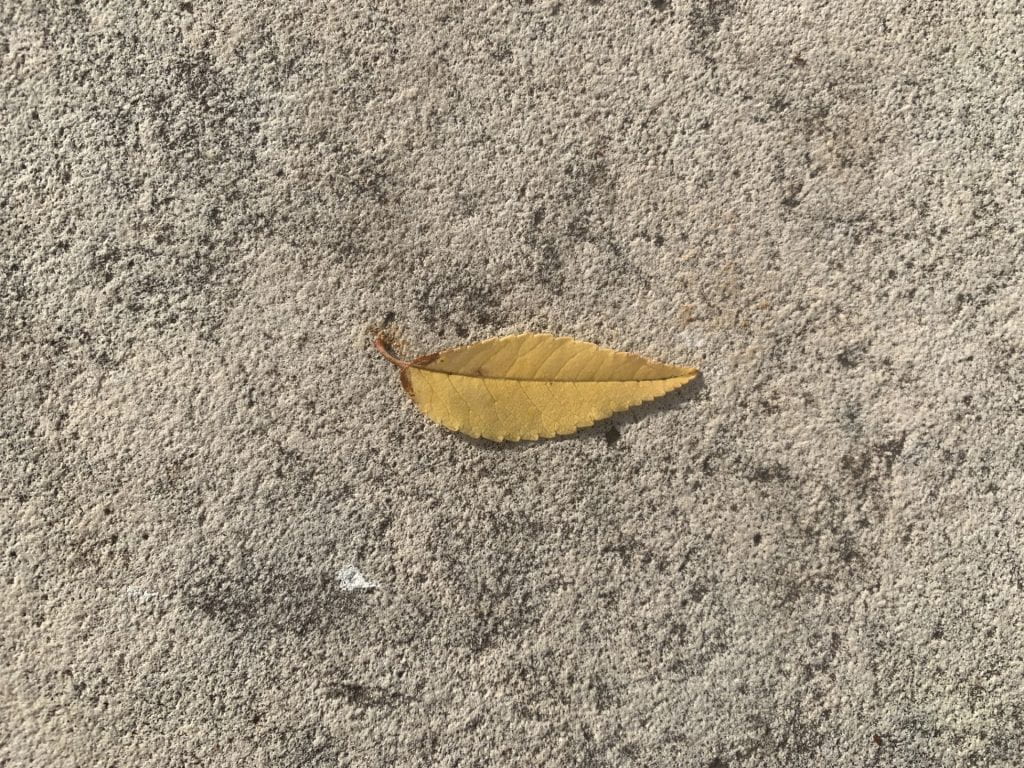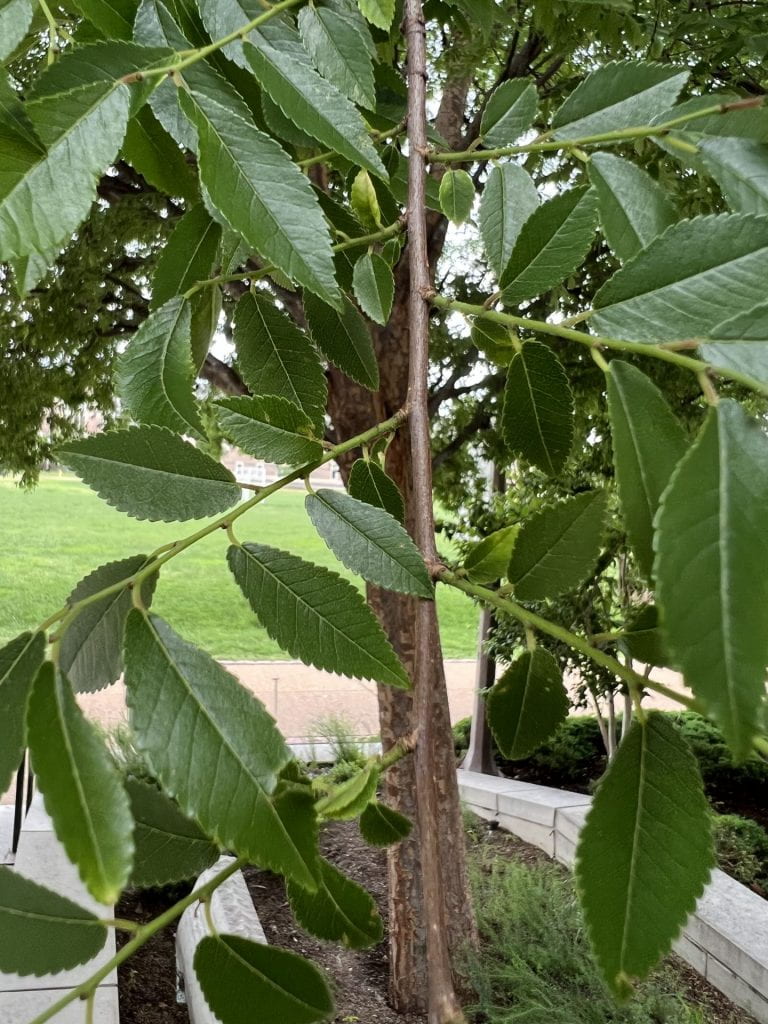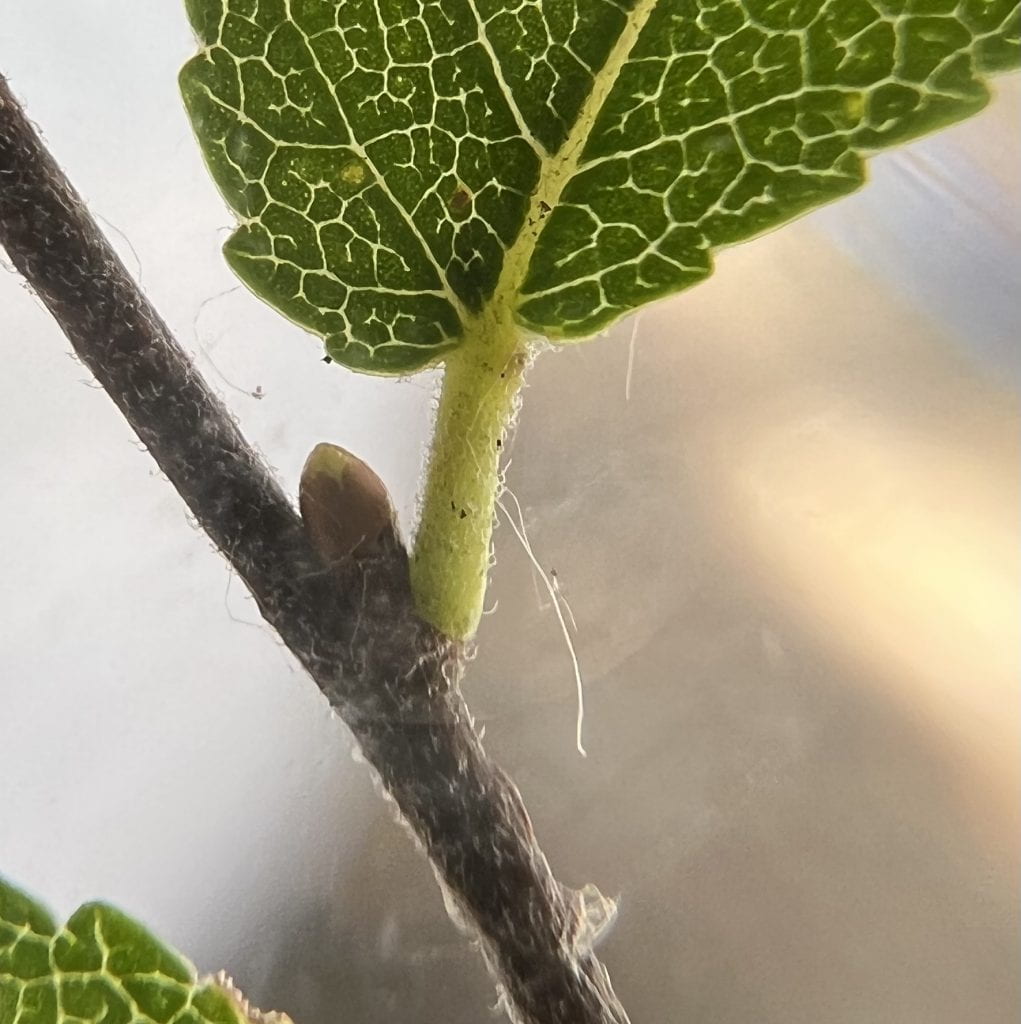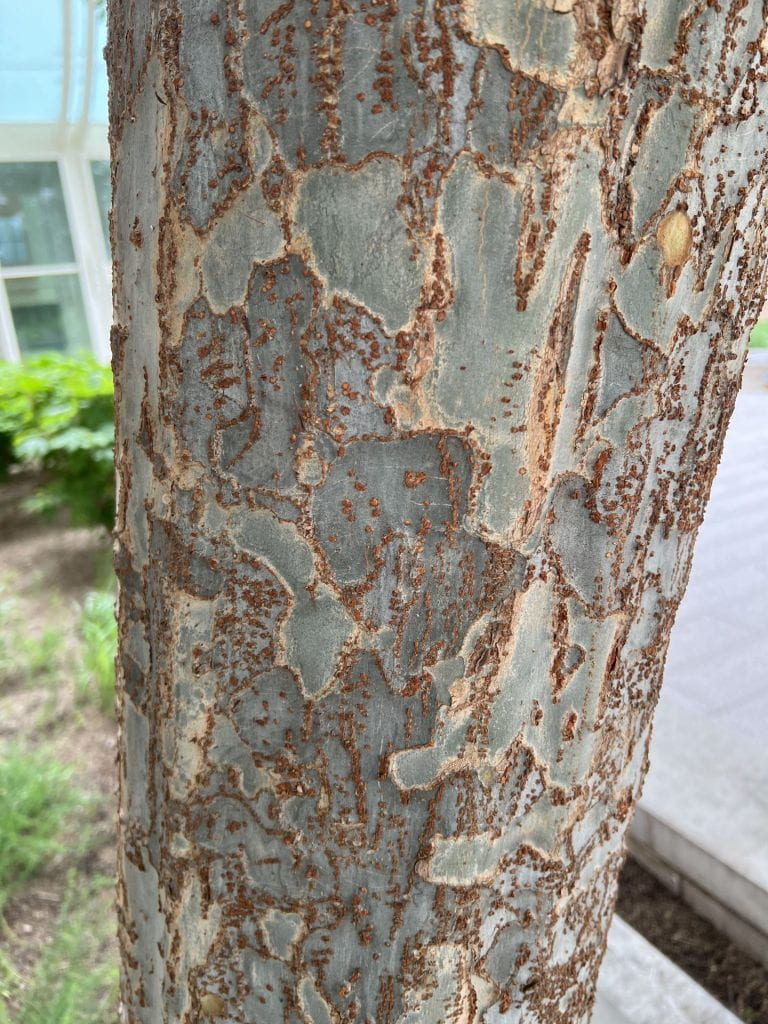Lacebark Elm
Arbor walk #5, Treekeeper ID #3495

The Lacebark Elm is a large elm native to China that is known for its intricate bark and durable wood. It has strong resistance to the deadly Dutch Elm Disease, making it an ideal planting or hybridization target. In addition to its beautiful mottled bark, it has lustrous dark green leaves that turn yellowish in the fall.
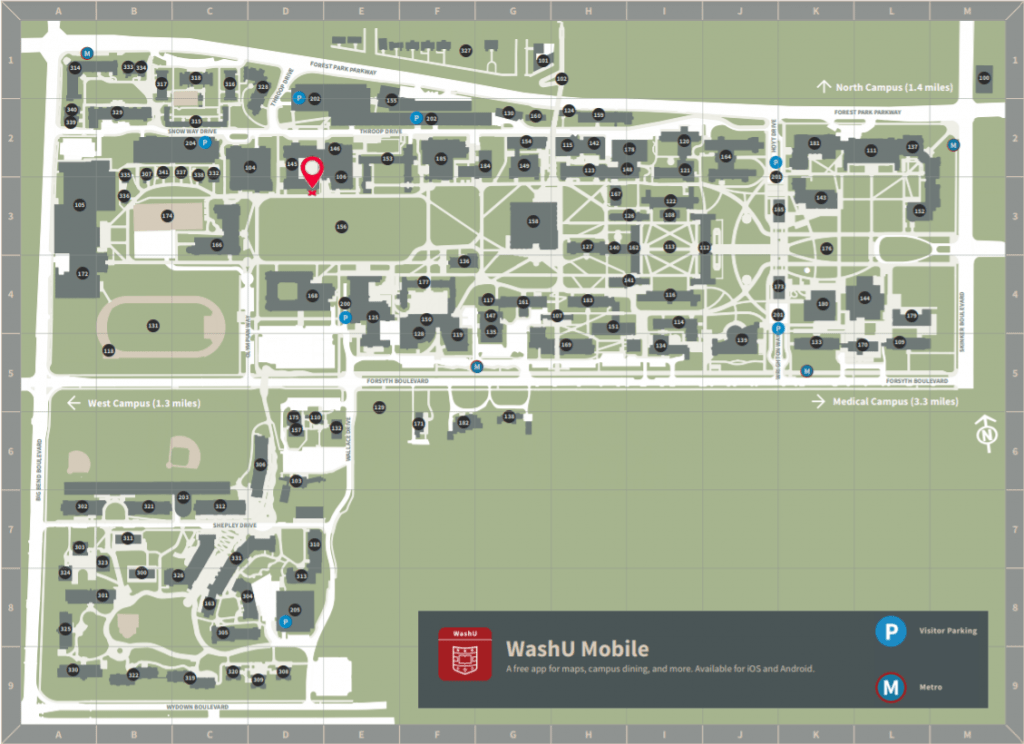
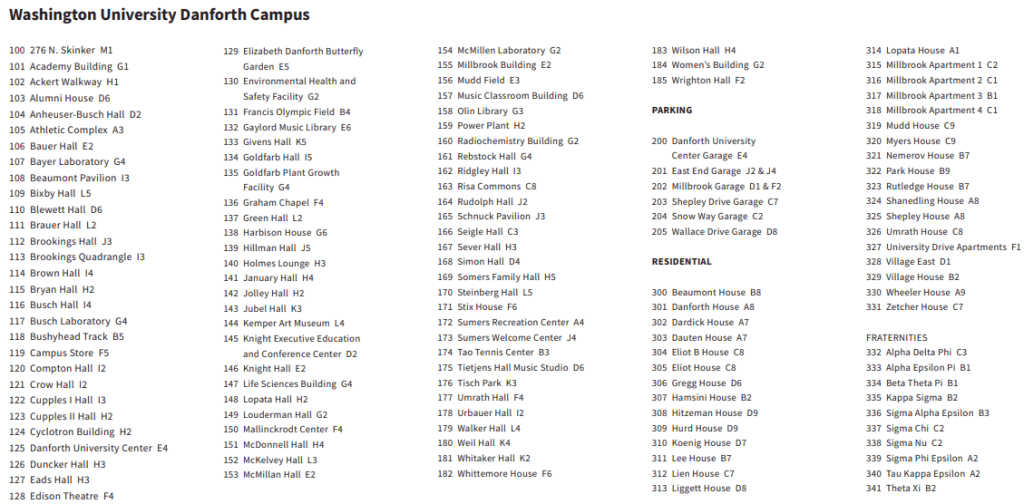
GPS Coordinates
N/A
Percent Concrete
N/A
Distance to Buildings
| Year | Close Building #1 | Close Building #2 | Close Building #3 |
|---|---|---|---|
| 2020 | Knight Executive Education & Conference Center, 1.88 m | Knight Hall, 14.49 m | Bauer Hall, 14.94 m |
Distance to Other Species
| Year | Close Species #1 | Close Species # 2 | Close Species # 3 |
|---|---|---|---|
| 2020 | Seven-Son Flower, 7.91 m | English Oak, 19.45 m | Seven-Son Flower, 22.12 m |
Standard Measurements
| Year | Height (m) | DBH (cm) | Caliper (m) | Crown Diameter N-S (m) | Crown Diameter E-W (m) | Average Crown Diameter (m) |
|---|---|---|---|---|---|---|
| 2020 | 11.6886 | 20.5 | N/A | 9.14 | 8.61 | 8.875 |
| 2023 | 14.5 | 27 | N/A | 14.43 | 12.07 | 13.25 |
Nests and Pests
| Year | Description |
|---|---|
| 2020 | Fall webworm (6 nests) 1 songbird nest Very peeled bark, orange ‘lenticels’ protruding throughout and concentrated in certain areas One large ‘reddish’ stain One large dark brown stain (looks rotten) |
Leaf Identification
The leaves of the Lacebark Elm are 3/4″ to 2 1/2″ long with an asymmetrical shape and base. They are a lustrous dark green and turn yellow in the fall.
Twig and Bud Identification
The twigs are light green maturing to brown, and are pubescent, as are the leaf petioles (leafstalks). The buds are football-shaped with light brown scales.
Bark Identification
The Lacebark Elm has exfoliating, mottled bark. It is dotted with orange-brown, especially along scale lines.
Fruit Identification
The fruit of the Lacebark Elm is a samara (winged papery seed cover), which matures in the fall to a brown color.
[photo forthcoming]
Flower Identification
The flowers of the Lacebark Elm are inconspicuous and red-green. The Lacebark Elm is monoecious (both male and female flowers on the same tree), and the flowers directly precede the samaras, appearing in summer or early fall.
[photo forthcoming]
